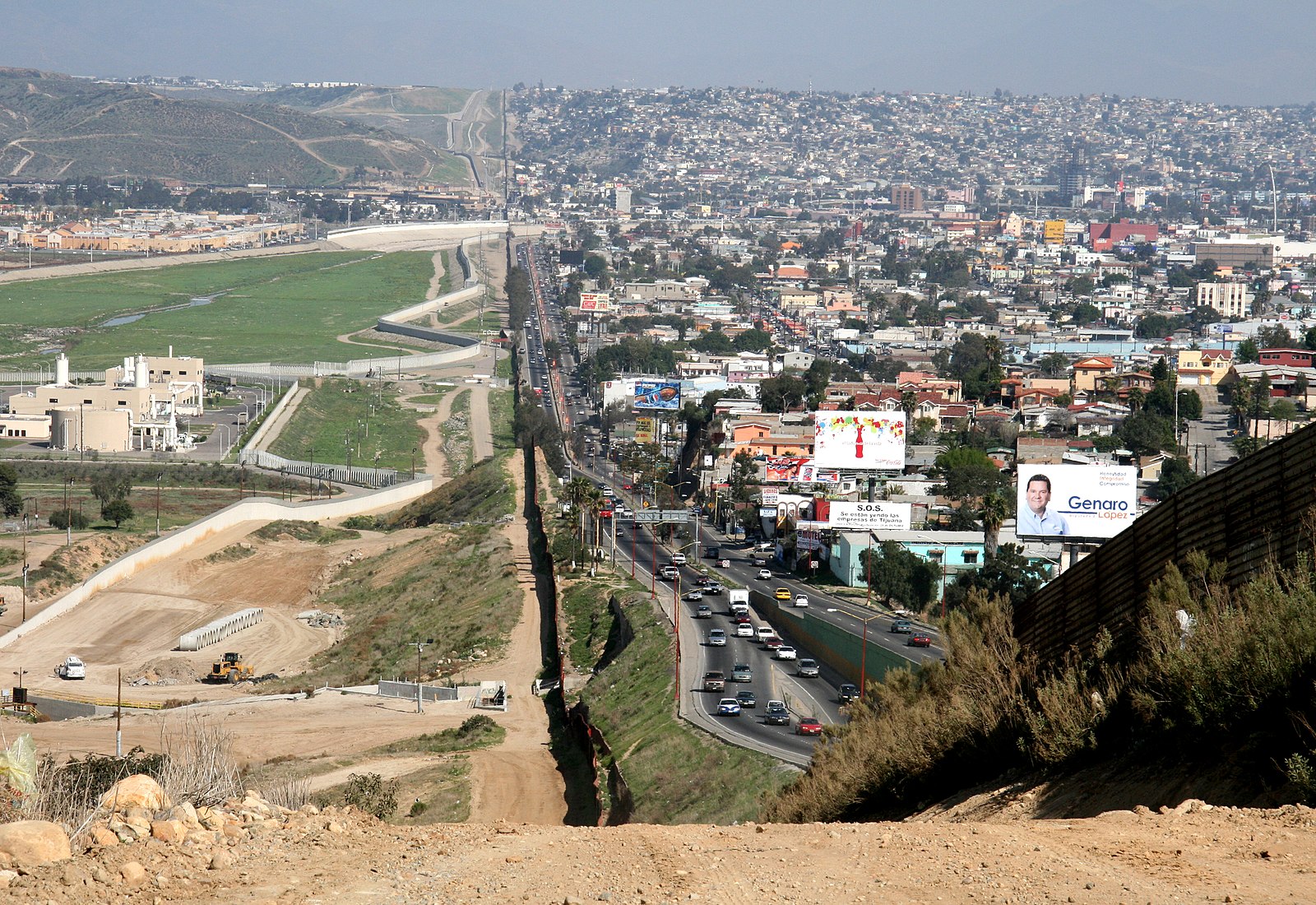Foreign Affairs
Biden Admin Plans To Direct $861 Million To Central American Countries So That Their People Won’t Invade The Border

A small fence separates densely populated Tijuana, Mexico, right, from the United States in the Border Patrols San Diego Sector. Construction is underway to extend a secondary fence over the top of this hill and eventually to the Pacific Ocean.
The Biden administration aims to send $861 million to Central American countries to address causes of mass migration to the U.S., according to the budget released Friday.
The administration plans to provide $861 million in federal aid to El Salvador, Guatemala, Honduras and Mexico in order to “address the root causes of irregular migration,” according to the proposed budget for 2022. Vice President Kamala Harris asked private sector companies to “make new, significant commitments” to create sustainable economic opportunities aimed at ending the migration crisis at the southern border on Thursday, according to the White House.
“Our comprehensive strategy to address the root causes of migration will involve significant commitments of U.S. government resources to support the long-term development of the region—including efforts to foster economic opportunity, strengthen governance, combat corruption, and improve security,” the White House said in a statement.
Addressing the root causes of migration from the Northern Triangle requires sustained economic growth and investment. The private sector has an important role to play. Today, I met with the leaders of companies and organizations that announced commitments to invest in the region. pic.twitter.com/tFTRInZxoZ
— Vice President Kamala Harris (@VP) May 27, 2021
Harris said the private sector’s resources are a crucial component to creating long-term economic growth in the region, according to the White House. With commitments from the U.S. government and private companies, the Biden administration will be able to leverage commitments and resources from regional governments, banks and international financial institutions.
“Together, we can work to overcome obstacles to investment, promote economic opportunity, and support long-term development in the region,” according to the White House. “Supporting the long-term development of the region, and in the Western Hemisphere more broadly, will require more than just the resources of the U.S. government.”
The U.S. government will support private sector commitments to increase investment and sustainable economic growth in the region, the White House said. The Biden administration said the goal is for private sector engagement to not change with politics to avert future crises caused by thousands of migrants making the journey to the U.S., the Wall Street Journal reported.
“We’ve been giving foreign aid to a lot of those countries for decades, and it’s only gotten worse,” Republican Kentucky Rep. James Comer said, the WSJ reported. The region has seen high levels of internal corruption, though some company officials said they’ve worked on economic development alongside anti-corruption efforts.
Mastercard committed to help bring five million people and one million small businesses into digital banking, according to the White House. Mastercard will also help close the digital divide for businesses and individuals in rural areas with limited internet access.
“Our view is that we will thrive as a company when countries thrive, and therefore it’s in our interest in terms of the long term,” Vice Chairman and President for Strategic Growth at Mastercard Michael Froman said, the WSJ reported.
Microsoft will expand internet access to around three million people in the region and work with local partners to open community centers where people have access to the internet and educational programs, according to the White House. Nespresso will source coffee from the region funneling at least $150 million into local communities while helping farmers improve crop yield and quality.
All content created by the Daily Caller News Foundation, an independent and nonpartisan newswire service, is available without charge to any legitimate news publisher that can provide a large audience. All republished articles must include our logo, our reporter’s byline and their DCNF affiliation. For any questions about our guidelines or partnering with us, please contact [email protected].

